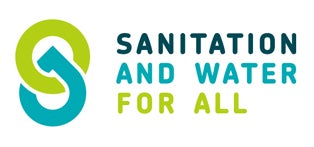
On April 11, the President of the World Bank Group, Jim Yong Kim, will welcome some 60 plus Ministers of Finance, Water and Sanitation, and Development Cooperation, high level leaders from the private sector, civil society, foundations and development organizations, to the third Sanitation and Water for All (SWA) High Level Meeting.
This is a milestone meeting not just because of its growing stature and unprecedented participation from the highest levels of government, but because this meeting signals renewed focus on sanitation--one of the most off-track of the Millennium Development Goals.
There is no doubt that progress has been made in many countries toward improving access to toilets and latrines, but there is urgency for this issue to become a higher priority for world leaders. Today, one-third of the world’s population doesn’t have access to a safe means of disposing human feces and 1 billion people practice open defecation. The impacts of inadequate sanitation cut across key development challenges—from public health, to education for girls, to safe food and water sources.
Lack of access to sanitation can contribute to keeping people in poverty and preventing equitable prosperity in society. And this is particularly troubling to us at the World Bank Group. Our goals are to end poverty by 2030 and boost shared prosperity for the poorest 40% in developing countries. As SWA partners report on progress made and increased country commitments leading up to 2016, we have a chance to leap forward toward this goal by signaling to the world that solving sanitation is an essential step to ending poverty, and one that can see vast and rapid progress among poor people in a relatively short amount of time and for little cost.
As the world’s largest multilateral financier in the sanitation space, we have learned over the years what works—and what doesn’t—to scale up sanitation solutions. For example, we must be smarter with our interventions for maximum impact on the lives of the bottom 40% of the population and revisit failed service delivery mechanisms. And we must engage in more robust dialogue with partners, including the private sector, to understand new ways of overcoming barriers to success and strategies for reaching the last mile to get sanitation to the people who need it.
The work of the SWA partnership underscores the importance of re-thinking how we target investments in Water, Sanitation and Hygiene. And we recognize that at the World Bank, we must pursue new dimensions to our work to better disseminate the science of sanitation service delivery.
The need is massive, urgent, and necessary. But we can achieve our goals if the global community comes together with renewed focus around sustainable solutions for the 2.5 billion people who do not have access to this most basic of all needs.
The Sanitation and Water for All HLM brings together ministers responsible for finance, water, and sanitation in developing countries, as well as ministers of development cooperation from donor countries, high-level representatives from development banks, and representatives of leading sanitation and water agencies.
Webcast available on April 11th, 2:00 p.m. ET at the following link:
http://live.worldbank.org/sanitation-water-for-all-high-level-meeting
View Ms. So's partner perpective article on the SWA website:
http://sanitationandwaterforall.org/partner_perspective/there-is-urgency-for-the-wash-issue-to-become-a-higher-priority-for-world-leaders


Join the Conversation